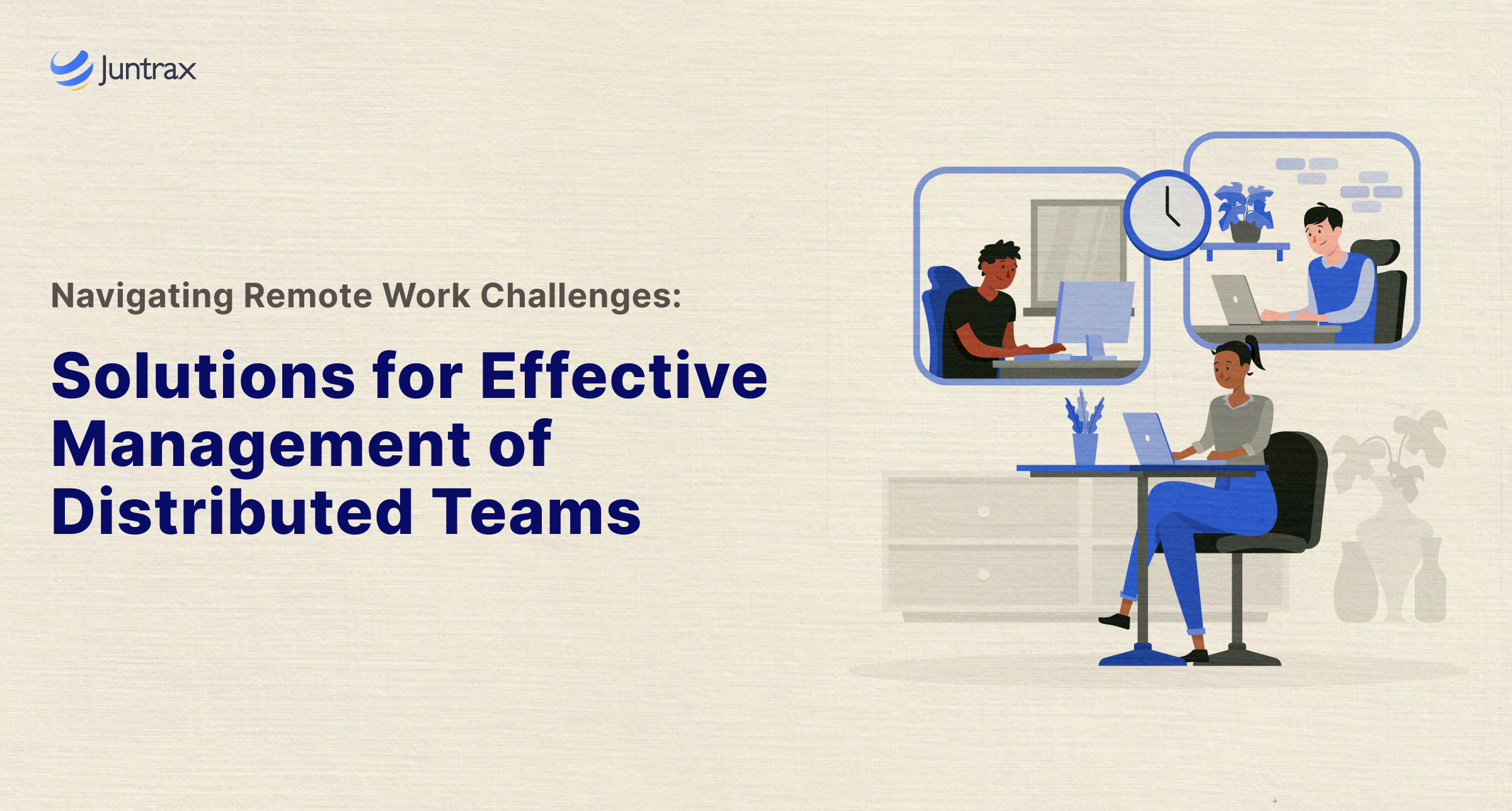Navigating Remote Work Challenges: Effective Management for Distributed Teams

Managing remote teams efficiently has become integral for businesses in today’s dynamic work landscape. Challenges like communication gaps, collaboration hurdles, and maintaining productivity persist as remote work evolves. However, Embracing effective management strategies can transform these challenges into opportunities.
This article delves into critical strategies to streamline remote team management, providing insights and actionable solutions to optimize distributed team performance while fostering a cohesive and productive work environment.
Communication Enhancement :
In a remote work scenario, communication is the backbone of successful collaboration. Implementing tools like Slack, Microsoft Teams, or Zoom allows real-time interaction, fostering a sense of immediacy similar to in-person conversations. Regular video calls, emails, and instant messaging apps facilitate clear and concise communication. Setting explicit communication norms, scheduling regular catch-ups, and encouraging open discussions through virtual meetings subsequently contribute to effective remote communication strategies.
Cultivating Team Collaboration:
Remote collaboration demands proactive efforts to build a sense of unity and teamwork. Establishing shared goals and transparent workflows promotes collaboration among remote teams. Utilizing project management platforms like Asana or Trello encourages teamwork through task delegation, progress tracking, and deadline management. In addition, organizing virtual team-building activities, fostering a culture of mutual respect and support and encouraging knowledge sharing through online forums or shared documents, cultivates a collaborative environment within remote teams.
Productivity and Performance Optimisation:
Ensuring sustained productivity within distributed teams requires balancing autonomy and accountability. Encouraging flexible work schedules tailored to individual preferences boosts motivation and productivity. Defining clear performance metrics and KPIs helps track progress and maintain high performance levels. Leveraging time-tracking tools helps monitor work hours and identify potential areas for optimization. Regular performance reviews and constructive feedback sessions foster continuous improvement, enhancing productivity across distributed teams.
Conclusion
In this blog we discuss the best Strategies for Effective Management. As remote work continues to be a significant part of modern business operations, mastering the art of managing distributed teams is crucial. By implementing practical communication tools, nurturing collaboration, and prioritizing productivity, organizations can successfully navigate the challenges of remote work, empowering their teams for sustained success.
Please read our blog on Top 6 Things to Look for in a Project Management System to know more!